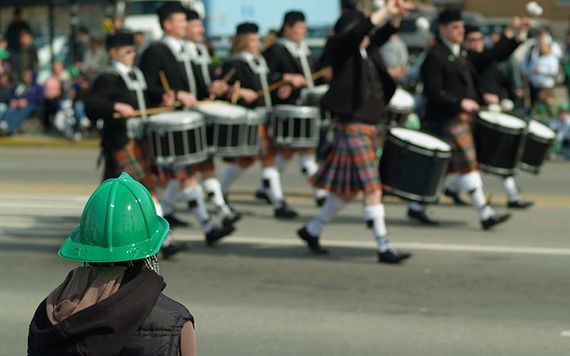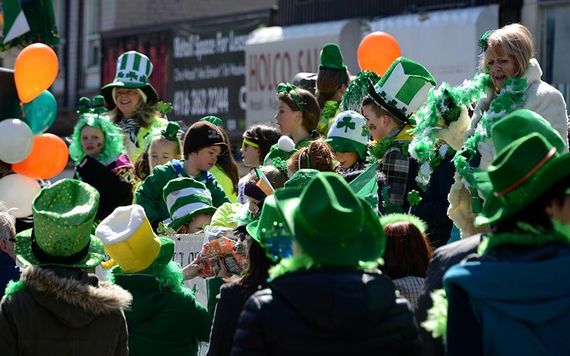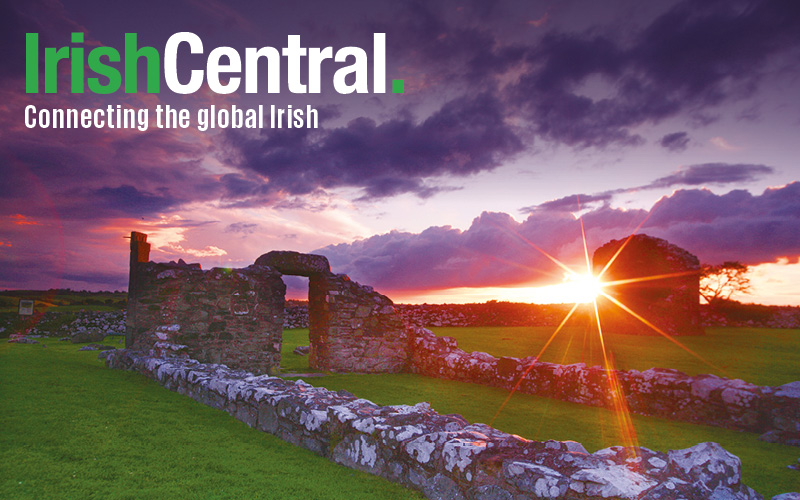Irish Americans – if you want to call it St Patty's Day, go right ahead.
Don't pay any attention to the (mostly young) folks in Ireland or from Ireland insisting that St. Patty's Day is wrong, that it has to be St. Paddy's Day.
Here's why you can say St Patty's Day if you want to:

Was the Saint a Paddy or a Patty?
1. Irish Americans invented St. Patrick's Day so, seeing as we made it, we can name it. It's our baby and we can give it any nickname we like too.
Oh sure, St. Patrick did his best work in Ireland and oh sure there was (probably) some form of Feast of St Patrick on the church calendar way back before America was even imagined, but nobody “celebrated” it. They marked the day with Mass, sweets for the children, but otherwise quiet contemplation. They have only been “celebrating” St Patrick's Day in Ireland for 25 years. Okay, they might have had parades before that, but those were just for children too.
In America, we have been celebrating St Patrick's Day since the 1700s. And by celebrating I mean “celebrating” - with big parades for everybody, huge parties with excessive food and, cough cough, drinks. Real celebrating. As I said, Irish Americans invented St Patrick's Day.
Read more: "Paddy, not Patty" website clears up common St. Patrick's Day error

The US did invent St Patrick's Day after all! Image: Getty.
2. Irish people love to say, “But it's Paddy, which is derived from Pádraig. That's why it has to be 'Paddy' and not 'Patty.'” Well, where's does Padraig come from? We call him Patrick, which is his name in English. Sure some in Ireland call him 'Naomh Padraig' when they get their Irish-language juices flowing, but Patrick himself was a Roman. He probably called himself Patricius.
So Paddy from Pádraig is fine, but it's no better than Patty from Patrick. (If someone knows what nickname was derived from Patricius, please let me know.)

"St Patty's Day" Parade? Image: Getty.
3. "St. Patty's Day" has been around a while. I don't know how long, but I remember seeing it when I was young. I never heard "St Patty's/Paddy's Day" in my house growing up nor do I use it, but I remember hearing adults I knew to use the phrase and I remember seeing it written out "St. Patty's Day."
I personally don't like it regardless of the spelling, but if you do, if you remember your father or mother or one of your grandparents using “St Patty's Day” and you like it because it recalls those memories for you, then you are well within your rights to use “St. Patty's Day” if you so choose.
We Irish Americans have our own history and cultural memories. We pronounce our t's hard, hard enough so that we can't tell the difference between Patty and Paddy. But Patrick is spelled with "a, t" so we spell Patty with a 't.' Simple.
Besides, why should we allow ourselves to be lectured to by people from Ireland? It was Irish Americans who saved Irish music when it had all but died out in Ireland. It was Irish Americans who kept the dream of independence alive when it had all but died out in Ireland (see Niall O'Dowd's column). It was Irish Americans who provided much of the funding for the language movement when that got going in the 19th century. We have earned the right to our own Irish cultural ways.
None of this implies that we know better than those in Ireland. It's just that we have our own traditions and one of those is – for some – “St Patty's Day.” If you're one of those people, don't be bullied out of it. Go on using our American hard t's. Go on writing “Happy St Patty's Day.”
Happy St. Patrick's Day to everyone.
What do you think? Let us know in the comments section, below.
Looking for events in your community this St Patrick’s Day or to share further information on the March 17 celebrations in your area? Join our St Patrick’s Day group and celebrate St Patrick’s Day 2020 in Irish style.
Read more: "Patty's Day" haters ready to strike back on proper St. Patrick's usage
* Originally published in 2019.




Comments